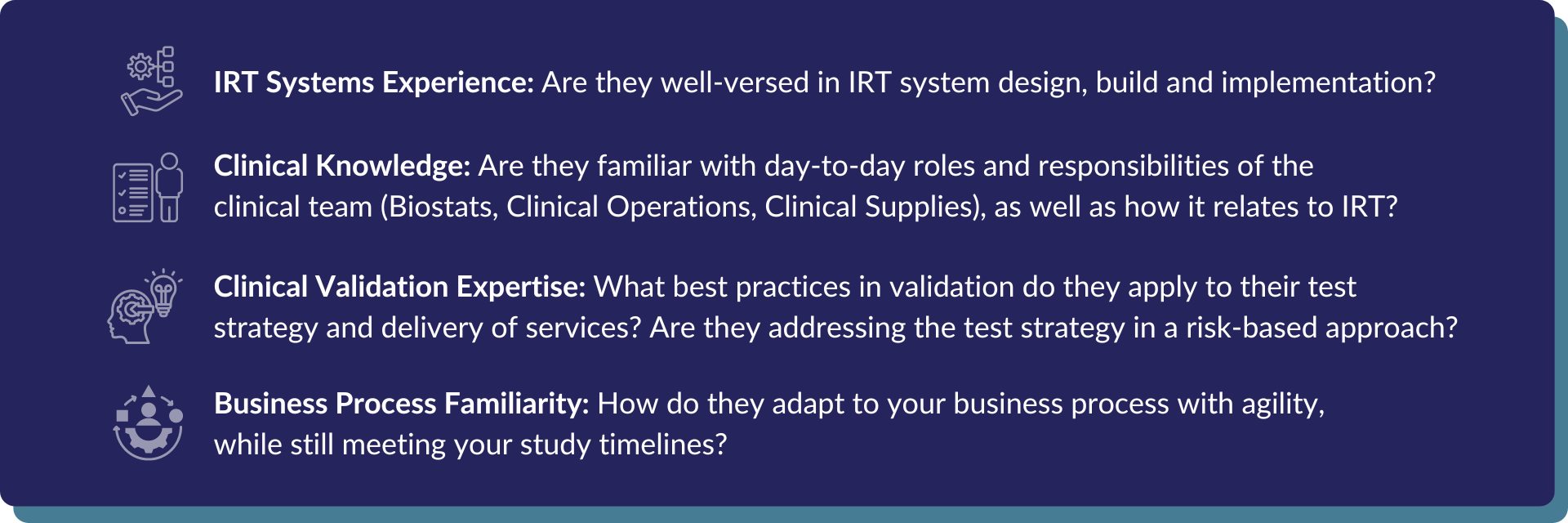Those of us with years of experience in IRT / RTSM may have experienced different hands writing scripts during UAT. Whether it is a Contract Research Organization (CRO), Sponsor, IRT vendor, or a 3rd party, there is no real consensus across the industry on who should be driving User Acceptance Testing (UAT) activities.
In early 2023, the Europeans Medicine Agency (EMA) republished the paper “Reflection paper on the use of interactive response technologies (Interactive voice / web response systems) in clinical trials, with particular emphasis on the handling of expiry dates.” The handling of IRT systems was becoming an increasing interest to national competent authorities (NCAs) ever since the technology expanded to greater and higher risk functionalities, highlighting “if not handled appropriately, posed an increased risk to the patient.” While the paper largely touches on expiry dates and labeling within the IRT, there is repeated mention of sponsor ownership of UAT.
Section 2.2.1 states, “This is an opportunity for the sponsor to test the system and this should be undertaken, preferably with test scripts written by the sponsor.” Sponsor ownership is again reiterated in section 2.2.4, “The sponsor should assure themselves through UAT of the suitability of each system. It is expected that the sponsor will write their own test scripts for testing the system.”
Based on the name – “user acceptance testing,” it makes the most sense for the user of the system, (i.e., sponsors) to author test scripts. However, authoring test scripts is simply not a reality for organizations that don’t have the in-house expertise. Often this is the case with small to mid-sized companies.
Turning UAT over to your IRT vendor can be problematic as there is a clear conflict of interest with the software provider both building and doing the user testing of the product. The same could be said in a layman’s example – “would you let your car salesman or manufacturer test drive your car?”







